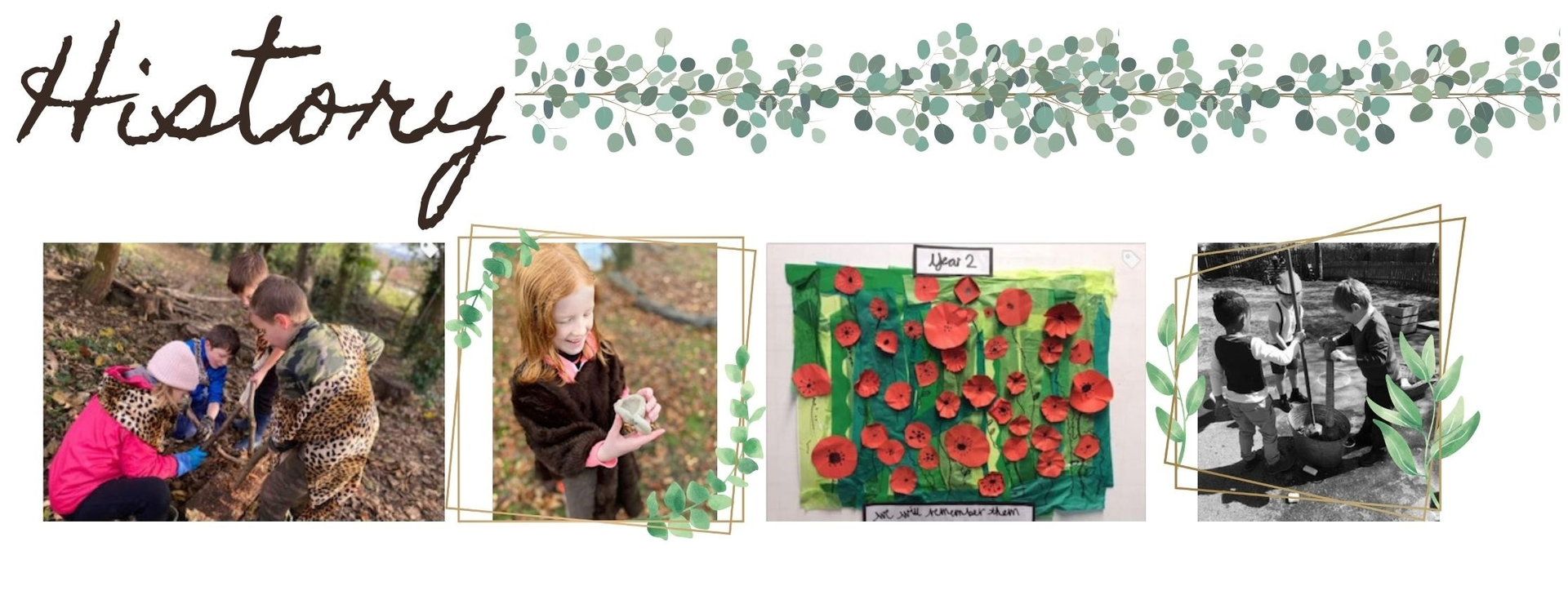
Our Intent
- Children become confident in the skills required by historians and can articulate the subject's distinctiveness. These include asking perceptive questions, thinking critically, weighing evidence, sifting arguments, and developing perspective and judgement.
- To build an understanding of chronology, ordering events, places and people.
- Teaching of history will enable children to have a secure understanding and knowledge of elements of Britain’s past and that of the wider world
- Inspire curiosity to know more about the past.
- To ensure that any gaps in learning, as a result of COVID, are closed and pupils meet at least age related expectations in History.
Our Implementation
- In EYFS, History is taught through a curious and creative curriculum that encourages the children to talk and ask about the lives of people around them and develop their understanding of what the past is. This may be done through stories, through discussions around settings, characters and events that occur. Based on the EYFS Framework.
- In KS1 and 2 the curriculum is mapped from the N.C requirements, enhanced by Elevate Progression documents and personalised to the context of our school.
- British History is taught in a chronological order so learning can build upon a developing understanding.
- Skills of historical enquiry are explicitly taught using 'skills characters'.
- Learning Cycles begin with 'planting the seed' with the use of the Knowledge Organiser, to capture children’s interests, engage them in their learning. This is 'harvested' through the learning journey. High quality core texts are used to further enhance the curriculum.
- The curriculum is designed to ensure that it links to relevant local contexts so that historical learning is relevant for our children.
- Knowledge organisers are used to ensure key knowledge and vocabulary is introduced. Teachers ensure that knowledge organisers build on previous learning and that pupils retain this vocabulary.
- There are regular opportunities to discuss the past, plot events chronologically and compare/contrast what is happening now to what happened in the past. .
- A range of high quality primary and secondary sources are used.
- Local resources and history studies engage and motivate pupils.
The impact
-
- We have a long term plan which is thorough, well thought through, sequential and clear both for knowledge and skills
- Children are securing more information to longer term memory and are able to articulate their history learning with confidence, evidenced through pupil voice.
- There is clear progression in books of learning for all pupils and across the year groups.
- The embedded cycle of Collect, connect, create supports staff with sequencing and planning.
- Teaching is embedded into Elevate’s principles for high impact teaching and Academy Trust training around these is further embedding and developing all staff providing opportunities to reflect, revisit and improve our teaching and learning.
- Children’s enthusiasm is high
Our History Lead is Alice White
of
Zoom:
Search:

